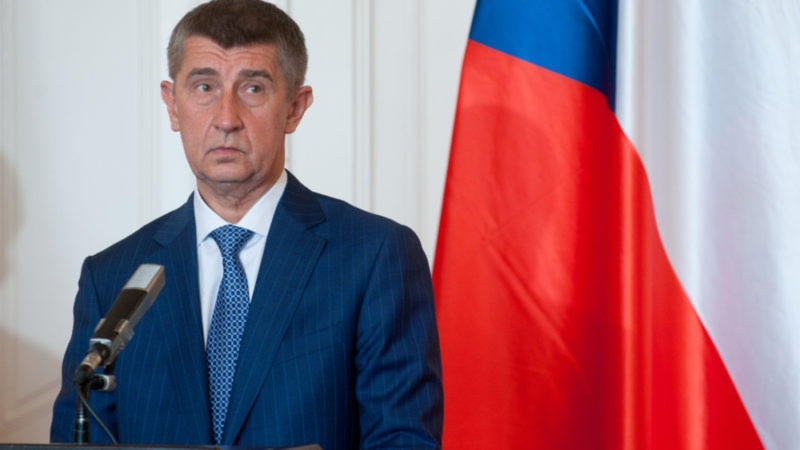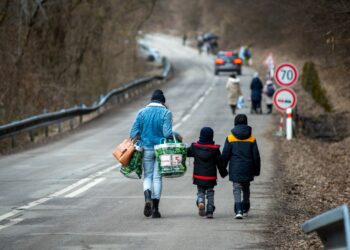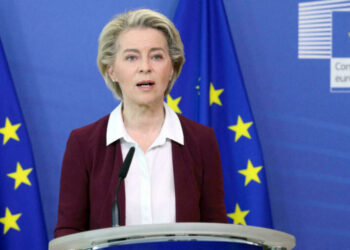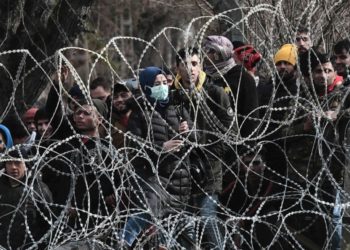On October 21, billionaire Andrej Babis and his ANO party won the Czech Republic’s general elections by a wide margin. Mr. Babis is a Eurosceptic whose populist anti-establishment rhetoric is sometimes compared to that of U.S. President Donald J. Trump. With populist parties on the rise all over Europe along with Brexit and the Catalonian crisis, increasing euroscepticism in the “Visegrad group” – the Czech Republic, Hungary, Poland and Slovakia – is more alarming for the future of the European Union than ever.
The Czech election results are especially worrying considering that neighboring Poland and Hungary are already ruled by populist conservatives who actively promote euroscepticism while standing up to Brussels on migrant quotas.
Mr. Babis and his ANO also used anti-immigration rhetoric in their campaign, but it would be wrong to draw direct parallels between him and Poland’s Jaroslaw Kaczynski or Hungary’s Victor Orban. First of all, the position of Mr. Babis and ANO is less dominant than that of Mr. Kaczynski’s Law and Justice party or that of Mr. Orban and his Fidesz.
ANO won almost 30 percent of the vote, but it still does not have the majority in the parliament – unlike Law and Justice or Fidesz – meaning that it will have to form either a coalition government with some of the country’s smaller parties or attempt to rule as a minority government. Also, unlike in Poland or Hungary, the Czech Senate can block any constitutional changes.
Most recently Mr. Babis claimed he will attempt to form a minority government. If he is successful, with eight other parties from different sides of the political spectrum from ANO, the Czech government in the coming years will be extremely unstable. It might prevent Mr. Babis from pursuing an opportunistic anti-European foreign policy, as he will have to focus on the domestic issues and turbulence in the government instead.
One can not blindly compare Mr. Babis to other European right-wing populists. Despite its strong anti-immigration stance, ANO is largely considered centrist rather than right-wing.
“I don’t think Babis and his party are right-wing populist. It’s much more an anti-establishment protest vote, thus quite a different phenomenon from Orban and Fidesz in Hungary. People voted for Babis mostly because they were fed up with the mainstream parties, corruption and the overall political development, in spite of a booming economy and the lowest unemployment rate in Europe (below 4 percent),” Milan Nic, a Senior Fellow at the Robert Bosch Center for Central and Eastern Europe, Russia, and Central Asia, told The Globe Post.
In fact, the Czech elections were characterized by the overall rise of anti-establishment parties regardless of their ideological orientations. Winners also included the youth-oriented liberal Pirate party and the far-right Freedom and Direct Democracy (SPD) party of Tomio Okamura, both of which gained more than 10 percent of the vote. While Okamura’s SPD is overwhelmingly anti-immigrant and anti-E.U., Pirates is a transparency-centered pro-E.U. party. Thus what the Czech people really manifested with their recent vote is not the resentment towards the E.U., but a distrust of the traditional parties and the political system.
“There is a visible detachment of people from politicians, backed by a certain detachment of the public from political representation, lack of constructive discussion about some crucial topics and an anti-establishment sentiment,” Veronika Víchova, Kremlin Watch Analyst at the think tank European Values, told The Globe Post.
For now at least, the Czech Republic is unlikely to follow the paths of Poland and Hungary in terms of the anti-EU policies, as it has too many domestic issues to address and will likely have an unstable minority government with the parties that have conflicting positions on the E.U. However, Czech foreign policy might change in the coming years if Brussels continues to be negligent of the interests of Visegrad countries. Rising euroscepticism in Eastern and Central Europe is largely triggered by the E.U.’s inability or unwillingness to tackle the problems these countries face.
“Part of the issue stems I think, and rightly so, from the perception that Central European needs are ignored from Brussels. Look at the past three years – the main topics for Central Europe have been Russia’s invasion of Ukraine and growing influence in the region, fears of mass migration, and resistance to creeping federalism and a quick timetable for the Euro,” Christopher Hartwell, President of the Center for Social and Economic Research, told The Globe Post.
“In each of these cases, who has prevailed? The Franco-German axis and Western Europe: Russia has only the most milquetoast of sanctions and French and German businesses are pushing to remove them; migration was settled unilaterally by Germany and caused a huge rift in the EU; and the entire EU apparatus has doubled-down on greater integration and moving towards the Euro (even as the Eurozone continues to stagnate). In each case, Central Europe was ignored.”
Currently, euroscepticism in Eastern and Central Europe mainly manifests itself in anti-immigrant sentiments and policies. However, if the E.U. continues its attempts to make these countries adhere to the Union’s rules by threatening them with sanctions instead of trying to address the interests of Visegrad countries, euroscepticism might grow and transfer to other issues besides immigration. It is equally wrong to consider all European populist parties to be similar and to think that all countries within the E.U. share the same interests.
Brussels has to acknowledge the differences between the Union’s member-states and make its agenda equally representative of their needs; otherwise, the tensions in the E.U. will become even more pronounced in the coming years.






















